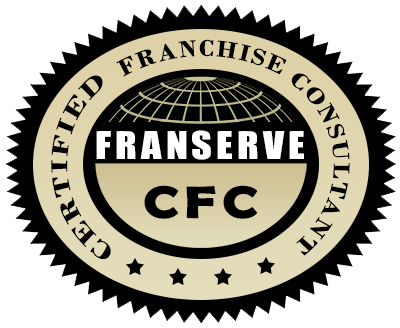The Benefits of Franchises over Distributorships

Franchises and Distributorships are advantageous growth strategies for product-based businesses. Neither design is inherently good or bad. However, just like a zone defense has its benefits over a man-on-man strategy at various times, a franchise has several specific advantages over distributorships that may be more advantageous for some companies.
Before the advantages are addressed, it is important to understand the similarities and differences between the models because they can look similar. Both operate from a central headquarters that manufactures a product/s to sell at regional levels. The retail locations are independent partners. The headquarters or manufacturer (those terms are used interchangeably during this article, but the headquarters does not have to be a manufacturer) still needs to recruit the independent partners. Various levels of support, marketing, and training are offered by both.
Some of the differences are that franchisors have a larger obligation to the franchisee in how they are to interact with the product and the franchisee pays a royalty for that support. With distributorships, the manufacturer typically has lower control and the distributor does not pay for the manufacturer’s support, just the wholesale price for the inventory. Franchisors have a greater buy-in from the franchisees and the franchisees are motivated for each others’ success. A distributorship is more focused on its own operation and not concerned with other distributors or the manufacturer. Distributors contract with a number of manufacturers and are not limited to restrictions established by the franchisor. A distributor is also normally an already established business with an existing customer base while a franchisor typically helps launch the location as a startup. Though these differences exist, the applications in business can make the two appear very similar. A very strict distributorship can appear like a franchise, and a very loose franchise agreement, can look like a distributorship.
Although the main focus of this article is about the advantages of a franchise model, here are several benefits of distributorships:
- The manufacturer is more hands-off relationally and contractually from the distributor, requiring less obligation.
- Most of the time, distributors are already established businesses with an existing customer base bypassing a start-up phase.
- The initial investment for the distributorship model can be less than franchises.
Franchises May be Lower Risk
The federal definition of franchises includes “significant control” or “significant assistance” in operation of the business (The Franchise Rule). A franchisor defines the operations, marketing, assistance, restrictions, financial obligations, and other details relating to their product. Franchisees that violate the requirements can be terminated. Franchisors typically offer an initial training, onsite grand-opening assistance for new locations to initiate business success and ensure compliance with protocol. Then, they offer support and on-going assistance for long-term success. Those strict requirements increase the quality control and lower the risk.
Franchisors also have visibility on monthly financial reports to watch the performance of franchisees. The financial transparency between franchisor and franchisee lowers risk because it provides the opportunity for the franchisor to provide the necessary training to steer the franchise in a healthier direction. This may be hidden by a distributorship because it is not required to be disclosed.
Franchises also require more disclosures. The Federal Trade Commission (FTC) requires a Franchise Disclosure Document (FDD) to be shared with a prospective franchisee that shows initial investment ranges, financial performance for the previous 3 years of franchises, and contact information of all existing and prior franchisees. The discovery process provides a minimum of two weeks for the prospect to be fully aware and validate the concept. Likewise, the franchisor has ample time to investigate the financial standing and background of the franchisee. This minimizes risk because of the thorough and informed due diligence that is embarked upon, weaning out partners who could hurt the brand’s performance.
Loyalty to Brand
One of the significant differences between franchises and distributorships is that distributorships have many additional products that they carry and are not isolated to the products or services directed by the manufacturer. The franchisees’ sole focus is the marketing, sales, and possibly installation of the franchisors’ specified products. The singular focus would not be overshadowed by competing services/products. The results from a focused franchisee on product/s designated by the franchisor could have stronger revenue than a distributor who would just place one’s product on a shelf next to the closest competition.
Franchisees are loyal to the brand of the franchisor and to the products they permit. The franchisee cannot price shop for competing brands when new products come on the market or sell competing items with different performance. They are fully bought into and fully committed to the products and services their franchise offers. Distributorships can sell the next flash in a pan or switch to a more supportive manufacturer.
Franchise Agreements also typically include a contract involving anywhere between five years and ten years before renewal. There is a long-term commitment to the brand that may not exist with distributorships. Manufacturing contracts can have long terms of agreement, but isn’t necessarily the case. For franchisors, when the term of the Agreement is completed, they have authority on the decision of whether or not the territory is renewed, transferred, or sold, and to whom.
Royalty for Support
Distributorships purchase products at wholesale price. They still may require training and support, but that mostly has to be done free of charge because additional training and fees for marketing support could trigger franchise law if those fees exceed $500 in the first six months. Franchises receive a royalty, typically between 4 and 8 percent of the gross revenue for their support service, in addition to products that they sell to the franchisee for distribution. Franchises can also sell marketing material and other products to the franchisees. Franchisors may have more revenue streams for their services than distributorships.
Public Franchises Financially Perform
One of the most significant points is that public franchises have more than double the performance of the S&P 500 index according to the Rosenburg International Franchise Center (RIFC 50) Index which has been tracking franchises since 2002 (RIFC50). For a more direct comparison, the S&P 500 has a Distributors Sub-Industry Index that has performed similarly or worse than the index as a whole for the last decade (MarketWatch). This continues to support that publicly held franchises have outperformed distributorships. Franchises perform better for several reasons:
- Franchisees are more fully devoted to their product or service than dealerships are to their manufacturers.
- Marketing controls increase stronger brand recognition.
- Franchises generally have lower financial risk and stronger financial positions.
- Greater loyalty exists by the franchisees and customers.
Future Diversification
Creating a franchise network and utilizing that network of locations provides an opportunity for diversification of product advancements when other products present themselves. Having a large network of franchises would improve one’s position in bargaining for the exclusive rights to new products since a distribution network would already be established. The brand then has a stronger competitive advantage and not simply a product on a shelf.
Franchisees Are More Innovative
The Big Mac at McDonalds came from a franchisee (USA Today). Bacon Cheeseburgers are credited to Dale Mulder, an A&W Franchisee (Restaurant Business). Even Jared Fogle’s weight loss marketing campaign for Subway came from one of their Chicago Franchisees (QSR Magazine). Franchisees’ devotion, loyalty, and drive for success makes them more motivated to come up with best practices. The dissemination of that information to the rest of the network improves everyone’s performance. Dealerships are in competition with one another and often receive little to no financial gain by others' success. Their interest is often not for the manufacturer; a franchisee’s interest is.
Summary
Franchising offers several advantages to product-based businesses as a growth strategy compared to distributorships. They offer a low risk model with better reimbursement strategies. Loyalty to the franchise takes multiple forms from customers and franchisees. Franchising also offers a long-term success strategy for diversifications and innovative applications. When weighing the pros and cons to either, ask these questions:
- Are you willing to lose shelf space with a distributor to a competitor who offers more support at a lower cost?
- Are you willing to allow the distributor to determine how to best sell or market your product and brand?
- Would you rather have an independent network of distributors or an innovative and motivated network of franchisees?
Although distributorships are a traditional route for many product-based industries, franchising does offer multiple benefits. Though franchising does not work for every product-based manufacturer, in many cases, strong support exists for the benefits of the franchise model over that of distributorships.
9/17/2021



